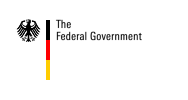The atmosphere during the discussion in the evening, Angela Merkel noted in Brussels, had been very positive and constructive. The debate had been a very serious one, since the goal was highly ambitious. "We want the EU to make a binding commitment to this goal," she pointed out.
A measure of credibility
"It is important that we can tell the G8 members that Europe has made a real commitment. That gives us a measure of credibility," the Council President emphasized.
There are two goals at stake, she noted. The first concerned the share of renewable energies, meaning wind, water, sun and biomass. "Nuclear energy," she made clear, "does not fall into this category."
The second concerned the overall reduction of greenhouse gas emissions by 20%. In this context nuclear energy could count as a low CO2 emitting energy source. This was an issue France in particular had raised.
Future challenges in the Declaration of Berlin
Over dinner the Heads of State and Government discussed the contents of the planned Declaration of Berlin. This is to be signed at the end of March in Berlin on the 50th anniversary of the Treaties of Rome.
"It should be aimed at the citizens of Europe and also be understood by them," the Chancellor emphasized. The Declaration would list the successes of the European Union, but also the tasks and challenges that lie ahead.
It would cite the fundamental values that unite the European Union. The issue of enlargement would also be addressed. Every enlargement to date had been an enrichment for the EU. The most recent enlargement, she noted, had also meant a victory of democracy over dictatorship.
In future the key issues facing the EU, according to the Council President, will be energy, climate change, competitiveness and the European Social Model. "Now we have a good basis to get down to work," she added.
